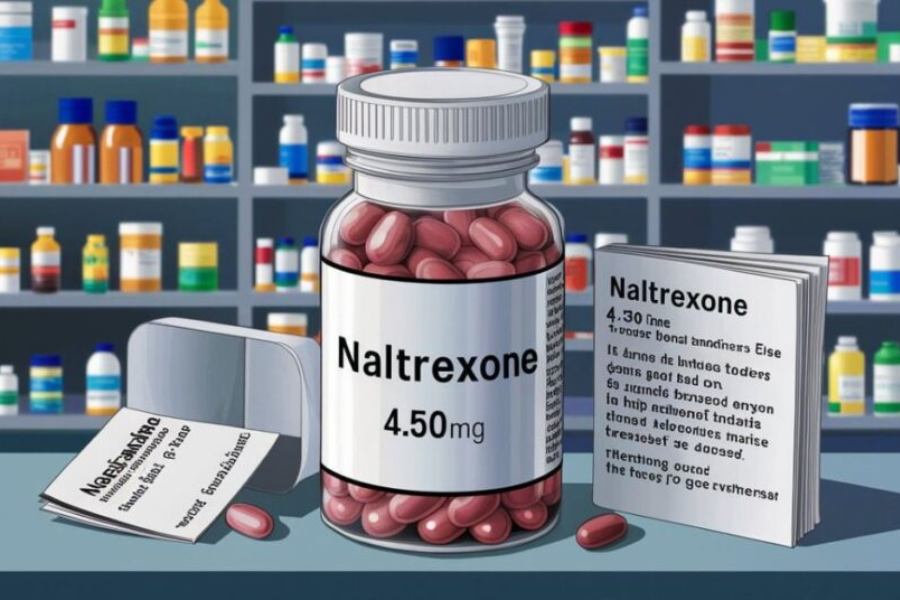Naltrexone 4.50mg extremely tired: The Ultimate Guide
Are you experiencing overwhelming fatigue while takingnaltrexone 4.50mg extremely tired? You’re not alone. Many individuals on this medication have reported feeling extremely tired, which can be both troubling and disruptive to daily life. Naltrexone is commonly prescribed to help manage addiction, specifically alcohol and opioid dependencies. This ultimate guide delves into the intricacies of Naltrexone, examining its effects, benefits, potential side effects, and alternatives. Whether you’re currently on Naltrexone or contemplating its use, this comprehensive overview will help you navigate the challenges of extreme tiredness associated with this medication.
What is naltrexone 4.50mg extremely tired?
naltrexone 4.50mg extremely tired is a medication primarily used to treat alcohol and opioid dependence. It operates by blocking opioid receptors in the brain, which helps diminish cravings and manage withdrawal symptoms. This action is crucial in supporting individuals on their path to recovery by reducing the pleasurable effects associated with alcohol and opioids, thereby aiding in maintaining abstinence.
However, experiencing extreme fatigue while taking Naltrexone can be concerning. Fatigue might arise due to the way the drug interacts with your body’s chemistry. Each individual’s reaction to medication can differ significantly, meaning side effects like tiredness can vary widely. It’s important to consider whether this fatigue is related directly to the medication or if it could be due to other factors such as underlying health conditions or concurrent medications.
Uses of naltrexone 4.50mg extremely tired
naltrexone 4.50mg extremely tired serves several purposes in the treatment of addiction and related disorders:
- Alcohol Dependence: For individuals struggling with alcoholism, Naltrexone helps reduce cravings and diminish the euphoric effects of alcohol. By blocking these effects, the medication supports sustained sobriety and helps individuals regain control over their drinking habits.
- Opioid Addiction: In the treatment of opioid addiction, Naltrexone works by curbing the high associated with opioids. This action helps patients resist the urge to misuse these substances and supports their recovery efforts.
- Behavioral Issues: There is emerging evidence suggesting that Naltrexone may also be beneficial in managing certain behavioral issues such as food cravings and obesity. Some studies indicate that it might aid in regulating appetite and reducing binge-eating behaviors.
Incorporating Naltrexone into a treatment plan can represent a significant step toward recovery, offering a multifaceted approach to managing addiction and associated conditions.
Side Effects of naltrexone 4.50mg extremely tired
While Naltrexone can be highly effective in treating addiction, it is not without its side effects. Extreme fatigue is one of the more common complaints among users. This tiredness can be profound and may impact various aspects of daily life, from work performance to social interactions.
Other reported side effects include:
- Nausea: Some individuals may experience gastrointestinal discomfort.
- Headache: Headaches can occur as the body adjusts to the medication.
- Dizziness: Dizziness and lightheadedness are also noted by some users.
- Sleep Disturbances: Changes in sleep patterns or insomnia might be experienced.
If extreme tiredness or any other side effects persist or worsen, it’s essential to consult with a healthcare professional. They can assess whether the dosage needs adjustment or if alternative treatments might be more appropriate.
How to Take naltrexone 4.50mg extremely tired
Taking naltrexone 4.50mg extremely tired requires adherence to your healthcare provider’s instructions to maximize its effectiveness and minimize side effects. Here are some guidelines:
- Consistency: Take the medication at the same time every day. Consistency helps maintain stable drug levels in your system, which is crucial for its effectiveness.
- Dosage: Do not skip doses. If you miss a dose, take it as soon as you remember unless it’s almost time for your next dose. Never double up on doses to make up for a missed one.
- Alcohol: Avoid consuming alcohol while on Naltrexone. Alcohol can interfere with the medication’s action and increase the risk of side effects.
- Hydration and Diet: Maintain a balanced diet and stay hydrated. Proper nutrition can support overall well-being and help mitigate some side effects.
If you have any questions or uncertainties about how to take Naltrexone, consult with your doctor for guidance tailored to your situation.
Benefits of naltrexone 4.50mg extremely tiredfor Alcoholism
naltrexone 4.50mg extremely tired offers several significant benefits for those dealing with alcoholism:
- Craving Reduction: By blocking the euphoric effects of alcohol, Naltrexone helps reduce cravings. This can make it easier for individuals to abstain from drinking and maintain sobriety.
- Emotional Stability: Many users report improved mood and emotional stability as the medication helps diminish the urge to drink. This can contribute to a more balanced emotional state and a higher quality of life.
- Increased Engagement in Therapy: Users of Naltrexone often find it easier to engage in therapy sessions and support groups. The medication fosters a greater commitment to recovery by creating an environment where sobriety feels more attainable.
- Healthier Lifestyle Choices: As individuals focus on their recovery, they may adopt healthier lifestyle choices, contributing to overall well-being and long-term health improvements.
Precautions and Warnings
Before starting naltrexone 4.50mg extremely tired it’s crucial to consider the following precautions:
- Drug Interactions: Naltrexone can interact with other medications, potentially leading to unexpected side effects or reduced efficacy. Discuss all other drugs you’re taking with your healthcare provider.
- Liver Health: Since Naltrexone is metabolized by the liver, individuals with liver disease should use this medication with caution. Regular monitoring may be necessary.
- Alcohol Consumption: Consuming alcohol while on Naltrexone can cause severe withdrawal symptoms and negate the benefits of the medication.
- Pregnancy and Breastfeeding: If you are pregnant or breastfeeding, consult your doctor about the potential risks and benefits of using Naltrexone.
If you experience unusual fatigue or any other concerning symptoms, seek medical advice promptly. Early intervention can prevent complications and ensure safer treatment options.
Alternatives to naltrexone 4.50mg extremely tired for Treating Alcohol
For those who experience significant side effects or seek alternative treatments, several options exist:
- Acamprosate: This medication helps restore neurotransmitter balance in the brain after prolonged alcohol use, supporting abstinence.
- Disulfiram: Known by its brand name Antabuse, Disulfiram causes unpleasant reactions when alcohol is consumed, discouraging drinking.
- Counseling and Behavioral Therapies: Cognitive Behavioral Therapy (CBT) and other behavioral therapies can help modify harmful drinking patterns and support recovery.
- Support Groups: Alcoholics Anonymous and similar support groups provide community-based encouragement and shared experiences.
- Mindfulness and Holistic Approaches: These methods focus on overall well-being and lifestyle changes, which can complement traditional treatments.
Conclusion
The experience of taking naltrexone 4.50mg extremely tired and feeling extremely tired can vary greatly among individuals. While the medication holds considerable promise in treating alcohol dependence and reducing cravings, extreme fatigue is a notable side effect that can affect daily life. Understanding how to manage this fatigue, along with staying informed about the medication’s benefits, precautions, and alternatives, can empower individuals to make well-informed decisions about their recovery journey.
Consulting with healthcare providers is crucial for tailoring treatment to individual needs and addressing any concerns. With proper guidance, individuals can navigate the challenges of extreme tiredness while pursuing sobriety and achieving lasting health improvements.






